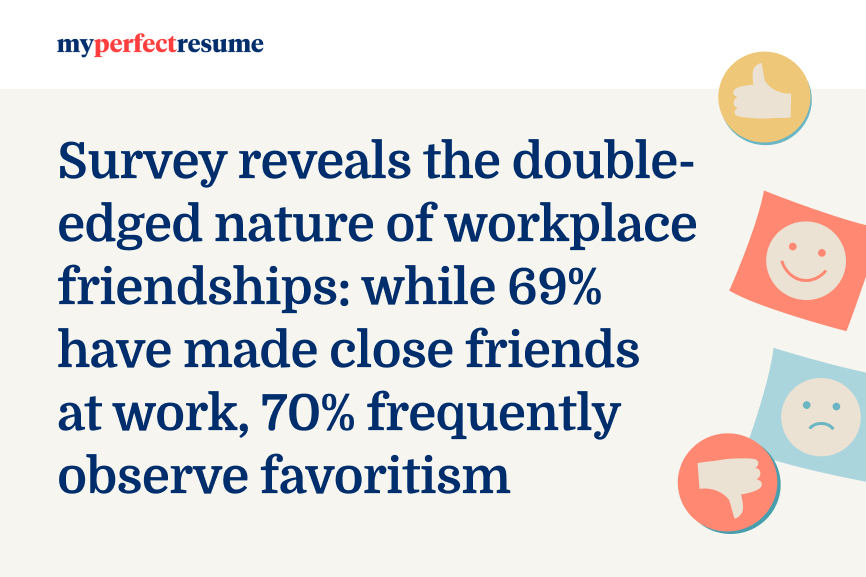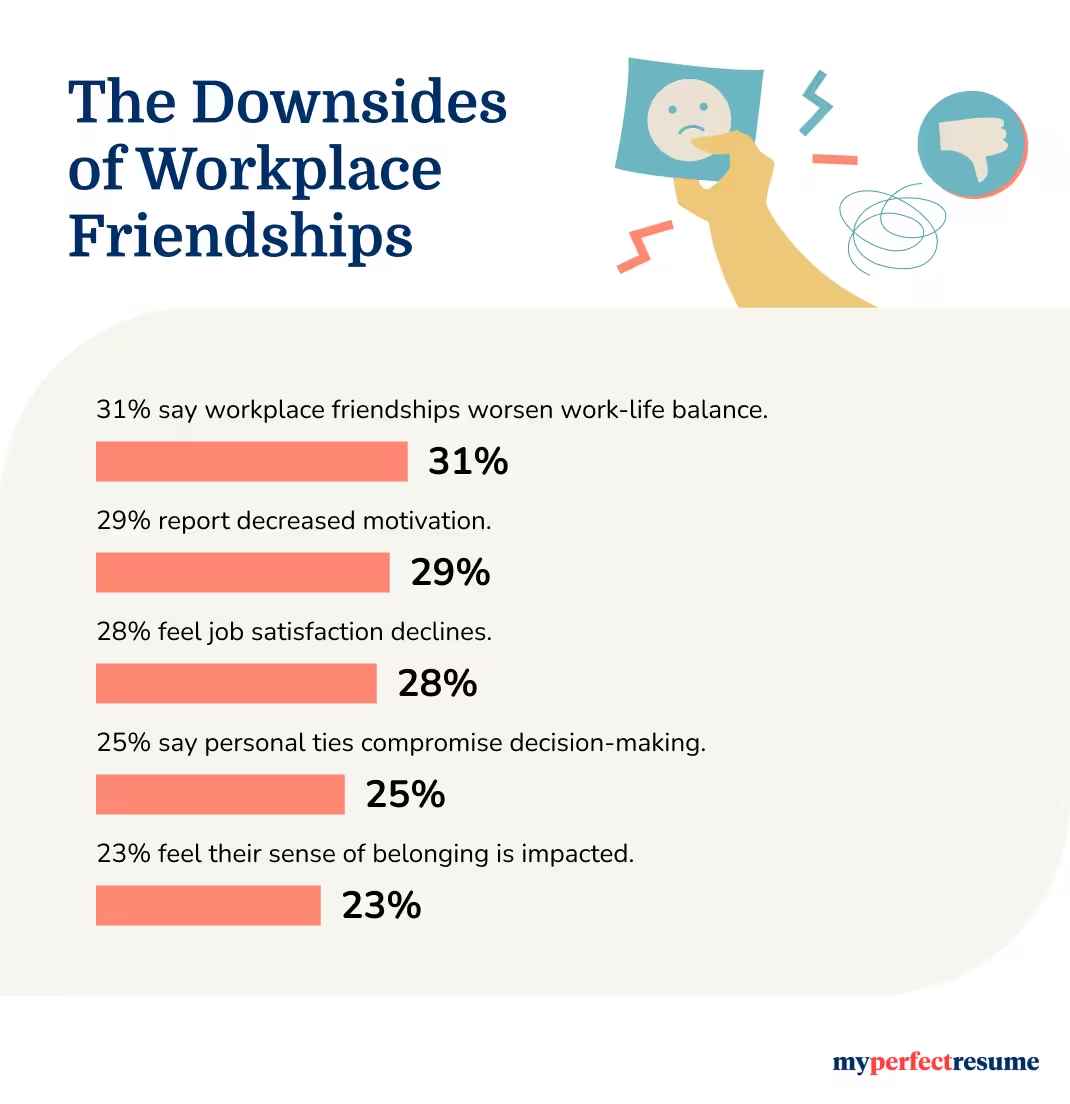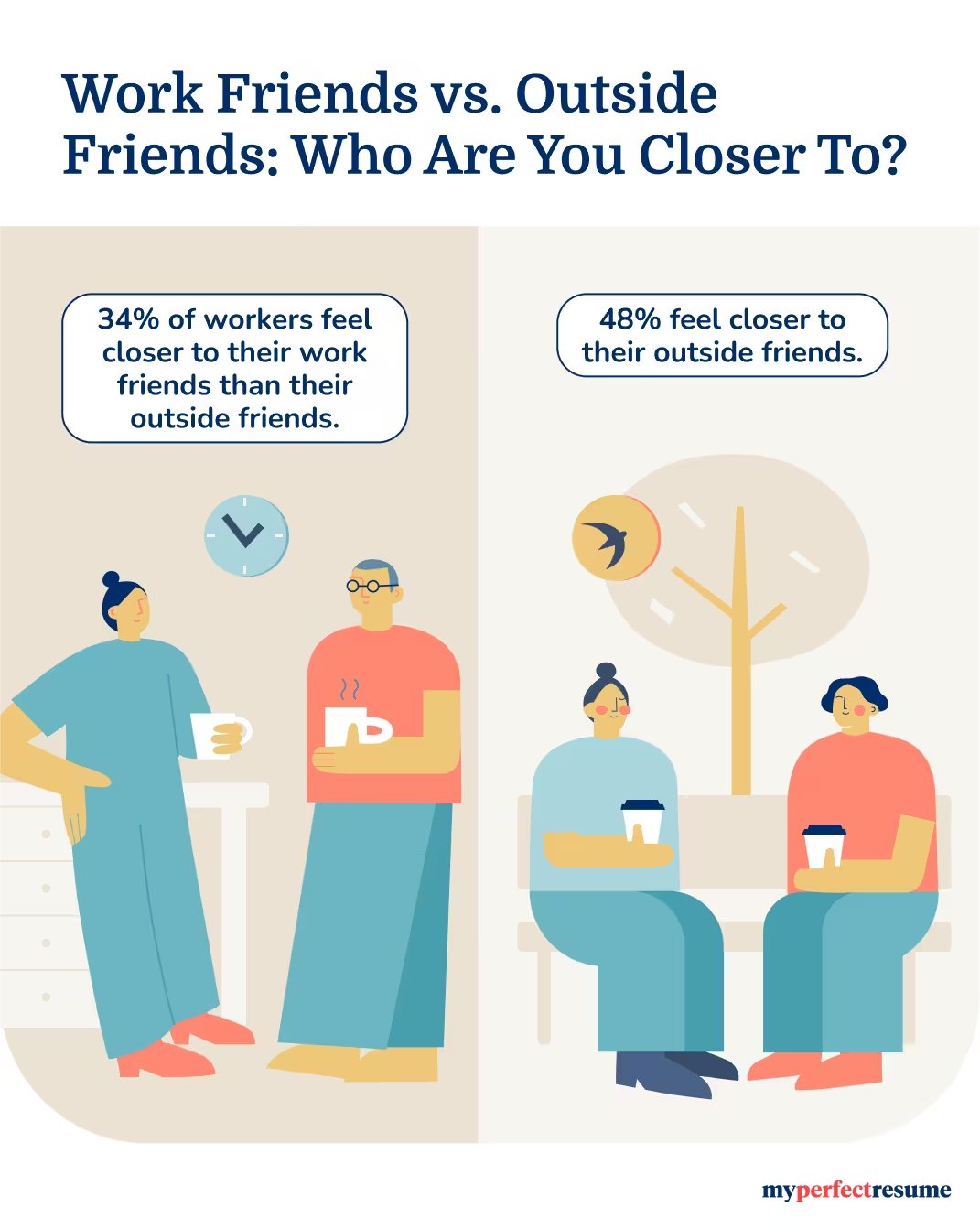Our customers have been hired at: *Foot Note
Workplace friendships can be a double-edged sword. While they can strengthen team collaboration and boost job satisfaction, they also introduce potential conflicts that can impact individual employees and team dynamics. MyPerfectResume surveyed 1,000 American workers for its Friendships in the Workplace report, which revealed the complex nature of these relationships.
While nearly 7 in 10 workers report making close friends at work, 94% have witnessed conflicts arise from these connections, often due to issues like favoritism.
Key findings from the report include:
- 73% of respondents attribute workplace friendships to increased collaboration, job satisfaction and productivity.
- 69% report forming close friendships with one or two colleagues, while 27% have many close friends at work.
- 70% frequently observe favoritism due to workplace friendships.
How Workplace Friendships Form
Workplace friendships develop through various interactions, both in-person and virtual. According to the survey, 42% of workers met their closest colleagues in person at the office or during company events, while 31% formed friendships through virtual platforms like Zoom or chat tools.
Despite these opportunities for connection, 6% of workers never engage in non-work activities with colleagues, and 37% rarely do.
The Benefits of Workplace Friendships
While workplace friendships can be challenging, they offer substantial benefits:
- 46% of workers report increased collaboration.
- 42% enjoy greater job satisfaction.
- 38% say friendships improve their productivity.
- 35% feel more motivated thanks to office friendships.
- 31% find better work-life balance through these relationships.
- 16% of workers attribute a raise or promotion to their workplace friendships.
Building strong, trusting relationships at work can open doors to new opportunities and career advancement. These connections can lead to increased collaboration, higher job satisfaction, and even recognition through raises or promotions. However, the success of these relationships often depends on maintaining a balance between professionalism and personal connection.
The Downsides of Workplace Friendships
While workplace friendships can enhance morale and collaboration, they also present several challenges that can impact employees' work experiences:
- 31% of workers say workplace friendships worsen their work-life balance.
- 29% report decreased motivation.
- 28% feel their job satisfaction decreases due to workplace friendships.
- 25% feel personal ties compromise their decision-making.
- 23% say workplace friendships have impacted their sense of belonging at work.
The most significant concern arising from these relationships is favoritism, with 70% of workers frequently observing this issue. Favoritism can create perceptions of inequality and erode trust among colleagues, ultimately affecting team dynamics and morale. Only 1% of respondents report never witnessing favoritism in the workplace.
The Role of Comfort and Trust in Workplace Friendships
While navigating the challenges, workplace friendships often provide valuable emotional support. A majority of workers feel comfortable confiding in their colleagues:
- 69% of workers say they feel somewhat comfortable sharing personal matters with work friends.
- Only 12% say they are not comfortable confiding in colleagues at all.
These connections can rival those outside work — 34% of workers feel closer to their work friends than their outside friends, and 48% feel closer to outside friends.
Friendships and Work Environments
The work environment plays a key role in shaping the dynamics of workplace friendships. The survey found that:
- 44% of workers believe on-site work is most conducive to building friendships.
- 39% prefer the flexibility of remote environments for making connections.
- 17% favor hybrid setups.
Key Takeaways
Workplace friendships can enhance collaboration, satisfaction, and productivity but also present challenges like favoritism and potential conflicts. Companies that foster healthy, professional relationships can see positive outcomes while promoting boundaries and balance to prevent adverse impacts on team dynamics.
For press inquiries, contact Elizabeth Buccianti at elizabeth.buccianti@bold.com.
Our customers have been hired at:*Foot Note







